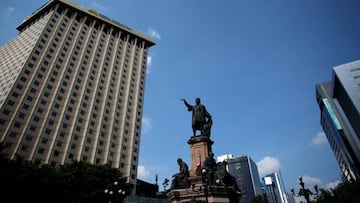CELEBRATIONS
Columbus Day in the USA: Why do some states no longer celebrate it?
The celebration has been controversial and has faced criticism, leading some states and municipalities to stop celebrating the holiday.

The observance of Columbus Day in the United States is a topic of ongoing debate due to the controversial historical legacy associated with Christopher Columbus’s arrival in the Americas.
While Columbus Day has traditionally commemorated the explorer’s journey and the supposed “discovery” of the Americas, it has also faced significant criticism for its disregard of the suffering and displacement inflicted upon Indigenous peoples by Columbus and those who came after him from Europe.
Consequently, some states and municipalities have opted to reconsider their approach to this holiday, either by replacing it with alternative observances or by choosing not to celebrate it at all.
Why some states no longer Columbus Day
For the celebration, Christopher Columbus is often credited with “discovering” the Americas, but this narrative ignores the fact that Indigenous peoples had lived in the Americas for thousands of years before his arrival. Columbus’s voyages also led to the colonisation of the Americas, which resulted in the enslavement and deaths of many Indigenous peoples. As a result, Columbus is seen by many as a symbol of oppression and colonisation.
“Columbus Day is not just a holiday, it represents the violent history of colonisation in the Western hemisphere,” Leo Killsback, a professor of American Indian Studies at Arizona State University, told the History Channel.
Understandably, many people, especially those of Indigenous descent, view Columbus Day as a celebration of a painful and violent history. They argue that it is insensitive to celebrate a figure associated with the suffering and displacement of Indigenous communities.
Some states and cities have chosen to replace Columbus Day with alternative holidays that honour Indigenous peoples and their contributions to American history and culture. For example, several states have adopted Indigenous Peoples’ Day as a more inclusive and respectful alternative to Columbus Day.
Some examples of states that made changes to the holiday
- Vermont: In 2019, officially replaced Columbus Day with Indigenous Peoples' Day
- Maine: replaced Columbus Day with Indigenous Peoples' Day in 2019
- New Mexico: In 2019, officially replaced Columbus Day with Indigenous Peoples' Day
- South Dakota: In 1990, renamed Columbus Day to Native American Day
The celebration of Columbus Day is not uniform across the United States. It is up to individual states and municipalities to decide whether to observe it and how to do so.






